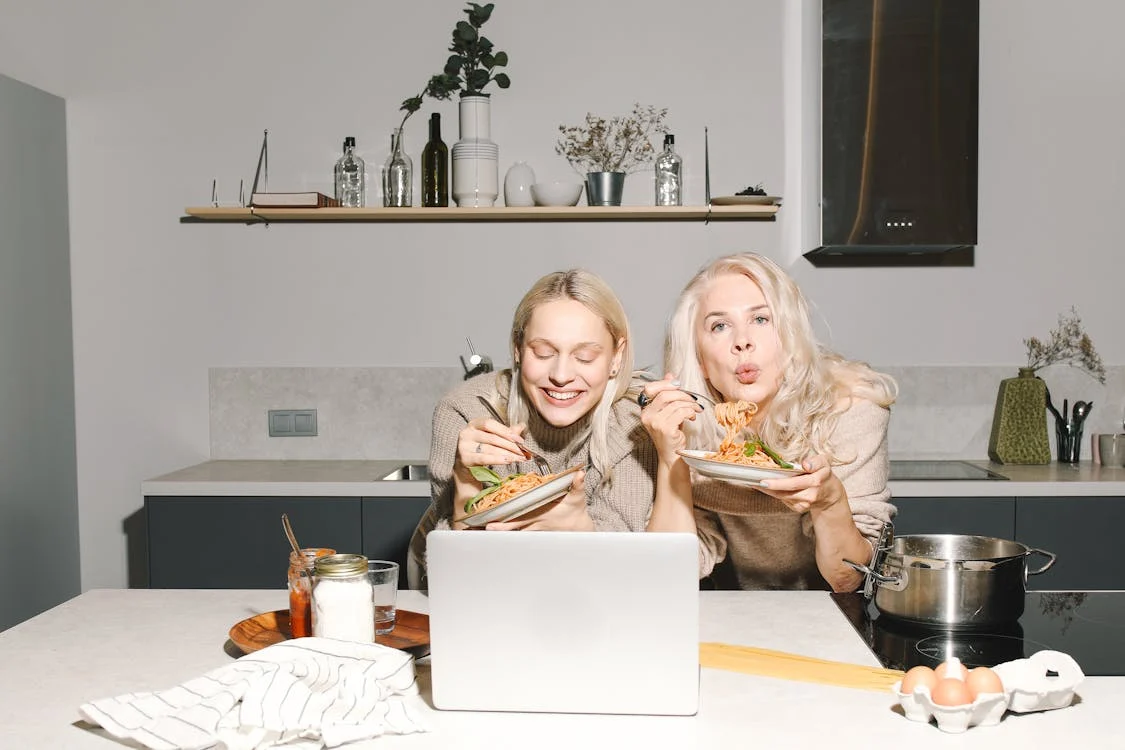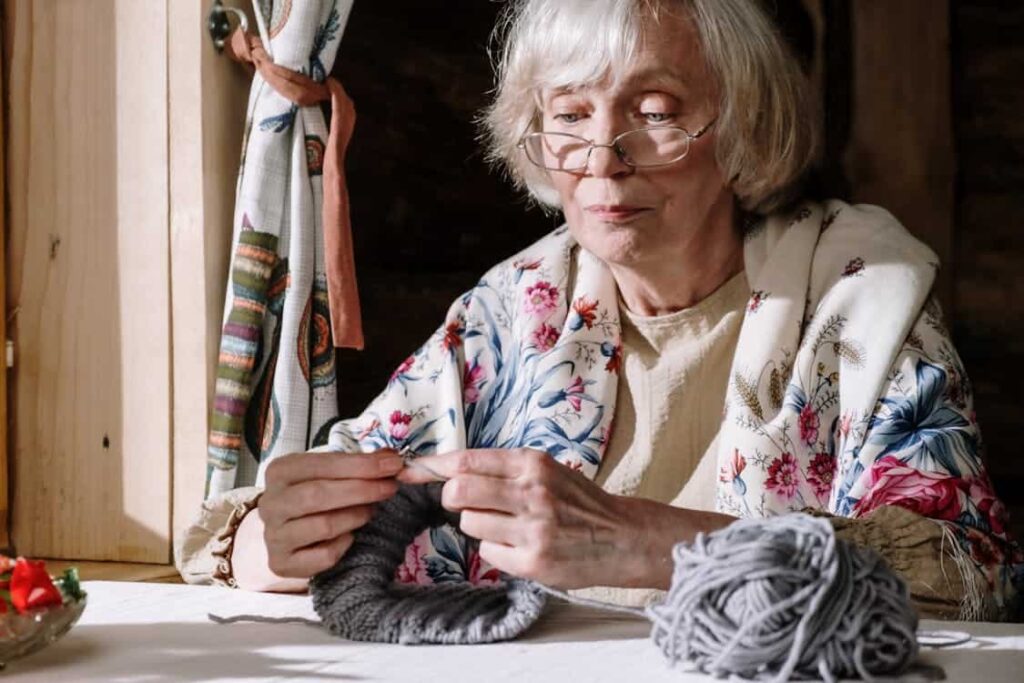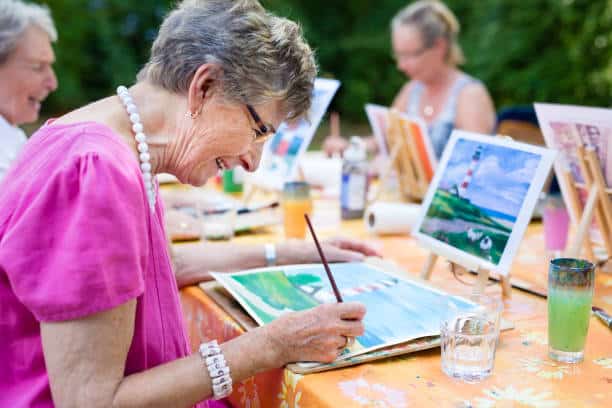21 Everyday Challenges Older Adults Prefer to Leave Behind


As we grow older, what matters most to us often changes, with many choosing an easier life instead of the stress that comes with a busy one. This wish for calm often leads people to give up things that make daily life harder.
The American Institute of Stress says that stress and swelling in the body are closely linked. If stress is not controlled, it can harm both the mind and body, causing more pain or making people feel alone.
In this article, we will talk about the usual things older adults stop doing and share tips on how to enjoy a simpler and happier life.
Have you also wanted to let go of things that don’t help you anymore? Let’s see what older adults often stop doing when they want a calmer and more joyful life.
Fewer Large Social Gatherings

As we get older, what we want in social life usually changes. Big parties that used to be fun can begin to feel too much. Many older people like smaller, quieter meetings where they can talk more deeply with those they care about.
The wish to build strong, close ties gets stronger, while big, crowded events seem less interesting. It’s not about going to every event but about spending time with the people who mean the most.
Avoiding Toxic Relationships and Drama

Negativity has no place in the lives of those seeking peace and happiness. Older adults are quick to distance themselves from toxic relationships, preferring instead to focus on positive, supportive connections.
Life is too short to get caught up in drama, and many people find that letting go of harmful relationships allows them to focus on the ones that genuinely bring them joy.
Saying “No” More Often

There is a new kind of freedom in being able to say “no” without feeling bad. Older adults often see that they don’t have to go to every family event or say yes to every invitation.
They start picking carefully how they spend their time and energy, choosing to do things that make them happy instead of feeling like they must do too much. This change helps them focus more on taking care of themselves and having personal time.
Too Many Possessions

As the years go by, it’s easy to accumulate more things than you really need. Souvenirs, gifts, and sentimental items can pile up, turning a home into a cluttered space.
For many older adults, there comes a time when possessions no longer bring joy but instead create stress. Letting go of these items can be a freeing experience, offering a chance to focus on what truly matters.
Downsizing or decluttering becomes a practical solution, helping to create a peaceful, organized environment.
The Burden of a Large Home

Taking care of a big house can feel more like work than fun. Tasks like yard work, fixing things, and regular upkeep use up time and energy that might be better used on other things.
This is why many older adults think about moving to a smaller, easier place to live. The idea of living simply with less work is very attractive, whether it means moving to a smaller house, a condo, or a community with extra help.
Easing Mental Overload

Just like physical clutter, mental clutter can weigh heavily on older adults. Constant distractions, decision-making, and a packed schedule can leave anyone feeling exhausted.
Older adults often seek out ways to streamline their lives, reducing unnecessary tasks and distractions. A more manageable routine, with fewer obligations, provides much-needed space to focus on relaxation and enjoying life.
Overly Complicated Devices

Technology can be very useful, but staying up to date can feel like a full-time job. For many older adults, the constant flow of updates, new devices, and features can become too much.
The amount of work needed to keep up with new gadgets, such as smartphones, tablets, or smart home devices, is not always worth the trouble. Many older people want technology that is easy to use and dependable, without needing to learn new things or fix problems all the time.
Endless App Updates and Password Overload

The frustration extends beyond the gadgets themselves. The constant requirement to update apps or software, often paired with having to remember an ever-growing list of passwords, can make technology feel more like a burden.
Security is a valid concern, but managing multiple accounts, each with its own password rules, can feel overwhelming. Many choose to simplify their digital presence by reducing their accounts or sticking with the bare essentials.
The Impersonal Nature of Digital Services

In-person meetings have a special value that online services cannot replace. Banking, shopping, and customer help have mostly moved online, and many older adults find this change feels distant.
The ease of online choices is obvious, but it means missing out on human contact. Many miss the times when you could go into a bank or store, talk to a real person, and get help made just for you.
Because of this, older adults often prefer to meet face-to-face and try not to depend too much on digital services.
Ditching Complex Diet Trends

In the world of health and wellness, there’s always a new diet trend. But for many older adults, the appeal of these complicated eating plans fades over time.
Instead of chasing the latest craze, there’s a preference for balanced, simple meals that support overall health. Rather than stressing over food choices, many prefer to eat what makes them feel good, focusing on nutrition without the need for restrictive, hard-to-follow diets.
Scaling Back on Fitness Expectations

Keeping your body healthy is important at any age, but hard, high-impact workouts often become less enjoyable as we grow older. Exercises that were easy before can begin to feel tiring or even unsafe.
Older people usually choose gentler activities that help with movement and feeling good overall. Things like walking, yoga, or swimming help you stay active without putting too much pressure on your body.
Seeking Straightforward Health Advice

Healthcare can be overwhelming with its medical jargon and complicated treatment plans. Older adults often prefer direct, easy-to-understand health advice. They gravitate toward holistic approaches and trusted healthcare providers who communicate clearly, avoiding the maze of complex medical procedures.
A focus on overall wellness, preventive care, and simple, effective treatments brings peace of mind and a greater sense of control.
Respecting Physical Limits

Aging bodies can only handle so much. Many older adults are mindful of their energy levels and physical limitations, opting to avoid activities that cause pain or discomfort.
Instead, they focus on preserving their energy for things that bring them joy, like spending time with family, enjoying hobbies, or participating in light exercise. It’s all about maintaining comfort while still engaging in the activities that matter most.
Comfort Over Fashion

As we get older, comfort becomes more important than trendy clothes. Even though looking nice still matters, older adults mostly choose clothes that are useful and practical.
They want clothes that are easy to put on, feel comfortable, and are simple to care for. Fashion focuses more on feeling good than following the newest styles.
Traveling in Moderation

Travel can be exciting, but long trips and excessive travel can become physically draining. Older adults often prefer shorter, less demanding vacations or local trips that allow them to enjoy the journey without the exhaustion that comes with long flights or road trips.
This lets them explore new places while still maintaining their energy and comfort. When planning a trip, older adults can prioritize comfort by considering factors such as transportation, accommodation, and activities.
Opting for direct flights, comfortable seating, and accessible accommodations can significantly enhance the travel experience.
Simplifying Investment Decisions

Handling a portfolio, keeping up with market changes, and dealing with complicated financial products can become more stressful as time goes on. Older adults often want to make their finances easier to manage, looking for safety and steady income rather than risky investments with big rewards.
Many pick steady income sources like pensions or Social Security and get help from financial advisors who take care of the tricky parts of investing. By making financial management simpler, they can feel safer and avoid constant stress about market ups and downs.
Tackling Healthcare Costs

Healthcare costs are a major concern, and they often rise as people age. The stress of managing medical bills, insurance, and long-term care can be overwhelming.
Many older adults look for ways to mitigate these costs, such as enrolling in Medicare, selecting supplemental insurance plans, or choosing affordable living arrangements that support their health needs.
Finding solutions that reduce financial strain helps them feel more at ease, allowing them to focus on their well-being rather than the stress of mounting expenses.
Seeking Stability in Housing

Uncertainty in the housing market can feel upsetting, especially for people who want a steady, long-term place to live. Many older adults want stability instead of the ups and downs of buying or selling in a changing market.
Staying in their current home with some changes, or moving to a retirement community, gives them the comfort and safety they want at this time in life. Having a steady, dependable home is much more important than following real estate trends.
Stepping Away from the 24/7 News Cycle

The steady flow of news can be tiring. It seems like there is always a new headline, a new problem, or a new thing to stress about. Many older adults find peace by cutting back on how much news they take in.
They like to keep up with what’s happening but avoid too much information, often picking only certain stories or watching trusted channels. This helps them stay aware without feeling stressed.
Leaving Social Media Behind

Social media, while once a fun way to stay connected, often becomes less important over time. Many older adults find that they no longer want to keep up with the pressure to post, comment, or engage online.
Instead, they focus on real-life connections and hobbies that bring them joy. Social media can feel more like a distraction than a necessity, and many are happy to step away or cut back on its use.
Filtering Out the Noise

In a world full of information, it can feel overwhelming. Many older adults choose to slow down by reducing how much information they take in each day. They pay attention only to trusted and useful sources, avoiding extra, unneeded details.
This way, they can keep up with important news without feeling tired by the large amount of information they get all the time.
Why Older Adults Are Letting Go for a Simpler, More Joyful Life

As we get older, life changes its meaning. Things that once felt very important start to seem less so, replaced by a wish for calm, ease, and happiness. Older people often start to let go of what does not help them anymore, choosing a life that feels more satisfying and peaceful.
By dropping needless worries, they open the door to many new chances, where the attention is on what really counts. No more chasing money, stressful places, or even tricky gadgets.
This time in life is a lovely sign that with age brings knowledge and the chance to live the way you want.
 If you like what you just read, then subscribe to my newsletter.
If you like what you just read, then subscribe to my newsletter.
- 30 Decent Discounts That Most Seniors Forget They Can Get
- 21 Retirement Challenges You Should Prepare For
AI was used for light editing, formatting, and readability. But a human (me!) wrote and edited this.





